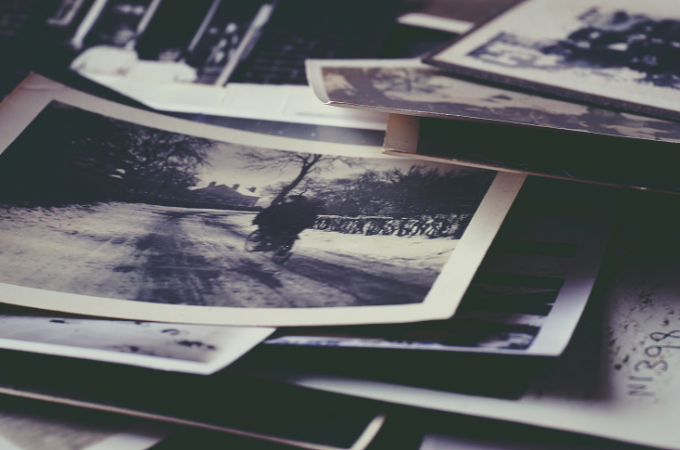
I have not seen the photo album since I came— that red book with pages of photographs running through moments and memories. It was a delight flipping through the pages in those days. Bashir would remove a photograph, look intently, and then pass it to me. I would dive in the vista of the faces and scenery before I passed the photograph to Khalil. If there was a face I didn’t recognize, I would ask Bashir. He was the oldest, so he recognized most of the people more than us.
Khalil would look over my shoulder as Bashir explained to me.
“This is Kawu ‘this’ and Goggo ‘that’”. We would laugh. The people looked much different in the photographs with the 16 inches Fela-style trousers, the babbar riga that were as huge as a blanket and the Goggoro headscarf that looked like hair on a crested duck’s head.
“They too felt modern in such style,” I would giggle.
“Of course,” Bashir would say, “those were the trends those days. You, will you wear those clothes that covered you like a tarpaulin now and those suits that had to be folded in the arms which Anty used to take you to the studio with? You see, those were the trends then. You too felt a ‘guy’ in those oversized clothes.”
We would laugh and continue looking at the photographs. There would be one where Faji posed with Anty and Kawu Isma’il sitting to both of her sides with her arms around their shoulders. One would be of the whole family lined up behind Faji and Kaka who would be the only ones sitting on a bench long enough to carry the two of them.
Another photograph would be of Anty sitting on the cushion with her legs crossed and her hands over her lap like an auditor in his office. There would be sets of silver Samira dishes in the background. I was told it was the first set of dishes she was taken to Baba’s house with. I grew up to see the Samira in a different location. They were moved to a cupboard in the store from the open cabinet. The appearance of the room had changed. A colour TV was in place of the black-and-white TV and the chairs had been replaced by Italian furniture.
The amusement of seeing the photographs would turn to amazement. The images would remain in my mind so much so that the photographs would be the first thing I would talk to Kawu Isma’il about when we met. “I saw your photo when you were a guy wearing Fela,” I would giggle, staring at the sharp bottom of his trousers.
He no longer wore Fela. Nobody did. Guys are now in competition to wear ‘pencil’ trousers. Some would make the tip of the jeans sharp that they would need the help of a polyethene material for their legs to pass through.
Umma Amina would only blush when I told her I had seen her in Goggoro. She wore a lighter headscarf now. No woman wore the turf of Goggoro any longer. The world had changed.
The world has changed, indeed, and days have passed. The house has changed. It does not teem of cousins that would come for the holiday, running across the yard, and blowing life with their breaths around the fire in the morning.
The compound is scanty, except for a new building housing Kawu Anas and his wife. Bashir is in Unimaid and Khalil in ATBU. The session break of the universities does not coincide for us to meet all together. Even then, as we grew up, we preferred to spend the holiday in Gombe than come to Kaltungo.
It was long since I visited Kaltungo. I hardly got more than two weeks’ holiday at the steel company in Kogi. The holidays come twice a year. I decided to visit Faji this time around. Kawu Anas hosted me in a room aside his room and parlour. I have grown up, he teased, and what remains now is for me to get married. I laughed and assured him I will marry soon. His wife teased that I would go to farm now that I came and it’s still raining.
“I can farm,” I said.
She giggled, “not anymore.”
I laughed. “Fight is contested where there is no sand,” I said, gesturing an invitation to bout with my hand.
She chuckled as she turned to the kitchen, “I will give you a hoe, then.”
She was right. I cannot hold the hoe and till the soil now. Those days when we came to Kaltungo during the rains, Bashir, Khalil and I would carry our hoes and follow Faji to the farm. We loved to seed as it only involved stumping the soil and dropping the maize or corn seedlings. When it came to weeding, we would hoe a few yards and collapse on the ground, gazing at the clear, crystal sky. We would drive the sheep to the pasture behind the woods and sit under the large tree by the hillside, moulding pot with clay. In the afternoon we would dive in the stream until the sun slipped behind the western hills and the sheep frisked down the slope. We would run them home, cheering.
The springs would overflow in the rainy season that water could be fetched by a scoop of the bucket. Townsmen would not have to go to distant wells in the wilderness to fetch water. I would fetch water at Kanya Stream where I’d meet Zarah. She was the girl that held my hand among the line of boys during the pick-a-partner game in the evening. At the stream, Zarah would roll Faji’s headscarf I carried into a fold for me to support the bucket on my head. I would help her carry her bucket first. She would bend down while I lifted the bucket to her head, our gazes melting into each other’s eyes as she rose up. We would tread the lawn side by side home, the dew splashing on our heels.
The days have passed, and time has nibbled into the fabric of our being. The walls of Kawu Anas’s building stand where the sheepfold stood. I went to the plains and the woodside. I trod alone without a sheep to drive. The trees had fallen, and the pasture could be seen from the base of the stream. Shrubs had sprouted in place of the green fields. The stream had sunken below the rocks and was sluggish in its flow. The atmosphere blew dry winds.
I didn’t go to Kanya Stream. Zarah was nowhere to go with me. I don’t know her whereabouts. She might have been living with her husband and children. Grief hailed on me as I passed their house coming from the stream of the fallen woods. Grief has been my feeling since I came. The day I arrived Faji hugged me. She stretched her arms from the bed to embrace me by the shoulder.
“Umar,” she whimpered, “you are the one…” She stared blankly at me. I could feel the stroke of her breath on my face. Her pale blue eyeballs glimmered as she felt my arms and shoulder.
“I am the one, Faji,” I chuckled.
“I can hear the voice,” she gasped in excitement. She lay back on the pillow and told me stories. She reminded me of how we would follow her to the farm and idle about, climbing Neem and Tsamiya. She spoke of the pastures and the streams which I would run to after rain. I would come back holding a mushroom over my head like an umbrella. She presented the vista so vividly as if a motion picture played in her eyes. She remembered the details more than I did.
“I cannot go to farm now,” she sighed, “not to anywhere.” Her eyes dimmed. She narrated to me how her sight weakened until she could not see anything but emptiness. At first, she thought the sun had abruptly went dark and then it seemed like the night continued for days. It took a long time before she believed she had gone blind.
I shook my head and sighed, “Subhanallah. You will have your sight again,” I said, “you have been patient about it and Al Jannah is the reward for whoever loses one’s sight and remains patient. There your eyes will see again.”
She exhaled deeply. “Maman ka,” she heaved, praying for mercy upon her dead soul, “Allah Ya jikanta…”
I uttered, “Ameen”.
“If she were alive,” she said, “she would have taken care of me better than anyone. Even now, Anas’ wife, ‘Allah Ya saka ma ta,'” she blessed her, “she is doing her best. She doesn’t wait for me to ask for anything. She brings the food on time. She washes my clothes and bathes me. She does everything.”
“What a blessed wife!” I said.
“When are you getting married?” she said, facing me squarely.
“Soon Insha Allah. Once there is news, you’ll hear about it.”
“Do me this favour,” she gasped, “marry while I’m still alive.”
“Insha Allah,” I remembered the photo album when Faji mentioned Anty. I have been hoping to have the pictures we snapped with her when I was a child. “Where is that red bag of photographs,” I said.
I had thought of scanning the photographs and keeping the images on my phone since that has replaced photo albums. Guests are no longer invited to flip through the leaves of the photo collection as they once were.
Faji told me the photographs are still there. I opened the box where it used to be kept and searched. I didn’t find it, so I kept on with other things. On the day I was leaving, I went back to it. Faji was lying on the bed while I raked through the box and sets of Samira on the cupboards. I looked under the bed. I didn’t find it.
“Umar,” Faji called.
I stopped and answered, “Na’am.” I walked to the bedside.
She sat up, dropping her heels on the floor. She took the pillow she was resting on and kept it aside, revealing a pile of photographs underneath.
“Umar,” she said, grabbing a photograph, “do you want to part me with the only remnants of life with me? This is my daughter,” she said, showing me a photograph of Anty. “It’s the only thing that brings her breath back.” She showed me the picture where she held Anty and Kawu Ismail to both of her sides. “This is her and Isma’il with me in the middle. Isma’il is alive,” she said solemnly, snuffing, “but I only see him in photograph. It’s been long he came.”
She identified my picture and that of Bashir and Khalil. She need only touch the edges of the frayed papers with her hands for the images to appear to her. She had the photographs in her heart.
I held her hand gently over the photographs.
“Faji,” I sighed, “I am not taking anything away from you.”
Photo by Suzy Hazelwood from Pexels



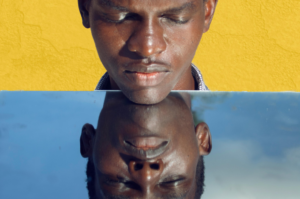
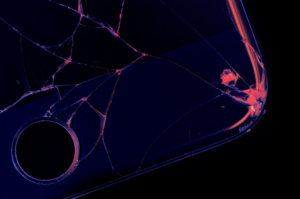
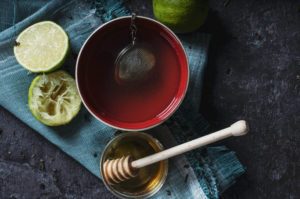
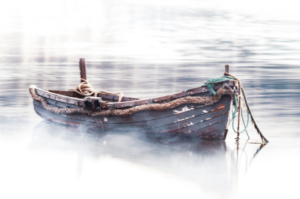
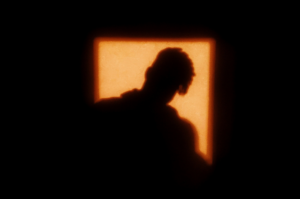
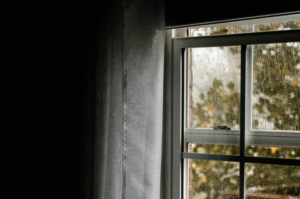

Muhammad Al-amin November 28, 2022 13:16
Lovely story!